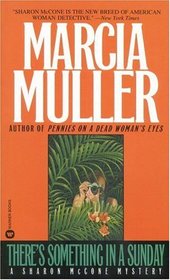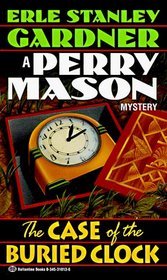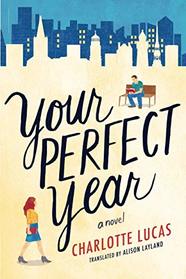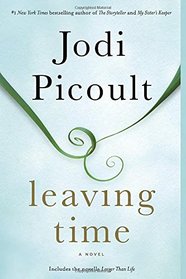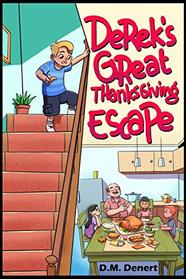Authors We Lost in 2019.
The end of a year is a time of reflection for most people. We think about the past year, the highs and the lows, and we look ahead to a new year full of promise and new beginnings. For me, as a reader, I have a tendency to look back on the authors who left us in the past year. 2019 was a rough year in that we lost some bright stars.
So, in alphabetical order, we must say goodbye to:
Dorothea Benton Frank (Sept. 12, 1951 – Sept. 2, 2019): I’m not sure South Carolina was even on the map before Ms. Frank came  along and shared her love of this beautiful area with all of us. Her 20 novels bring to life Charleston and surrounding areas, and the families living there. Her last novel was Queen Bee, but she was also known for Plantation, Sullivan’s Island, and Shem Creek, just to name a few. Just by opening one, I think I can smell the sea and feel the sunshine of her beloved Lowcountry.
along and shared her love of this beautiful area with all of us. Her 20 novels bring to life Charleston and surrounding areas, and the families living there. Her last novel was Queen Bee, but she was also known for Plantation, Sullivan’s Island, and Shem Creek, just to name a few. Just by opening one, I think I can smell the sea and feel the sunshine of her beloved Lowcountry.
Ernest J. Gaines (Jan. 15, 1933 – Nov. 5, 2019) : Mr. Gaines wrote of the struggles of African-Americans in such novels as A Lesson Before Dying and The Autobiography of Miss Jane Pittman, focusing on a time before the civil rights movement in this country. He wrote eight novels and many short stories, and was honored with numerous awards, culminating in the National Medal of Arts bestowed on him by President Barack Obama in 2013.
Tony Horwitz (Jun. 9, 1958 – May 27, 2019): A Pulitzer Prize-winning journalist, Mr. Horwitz authored several books, and is probably best known for Confederates in the Attic. He took us all over the world: Australia, Bagdad, the deep South, islands in the Pacific. His books embodied the best of armchair travel combined with history and a peek at various cultures, some foreign, and some perhaps very familiar.
best known for Confederates in the Attic. He took us all over the world: Australia, Bagdad, the deep South, islands in the Pacific. His books embodied the best of armchair travel combined with history and a peek at various cultures, some foreign, and some perhaps very familiar.
Judith Krantz (Jan. 9, 1928 – Jun 22, 2019): She started out by giving us Scruples in 1978, and she really didn’t let up for almost 20 years. Her first novel was published when she was 50 years old, which should give every aspiring author a great deal of hope. She retired from writing at age 70, after the publication of Spring Collection.
Johanna Lindsey (Mar. 10, 1952 – Oct. 27, 2019): If you are of a certain age, I can almost guarantee you started your career in romance reading by picking up one of Johanna Lindsey’s 50 novels. She started with Captive Bride (1977) and not only gave us wonderful love stories set in various historical time periods, but who didn’t love the Fabio covers?? I remember my grandmother catching me reading one of Ms. Lindsey’s books—and after confiscating it, and reading it herself, asking me if I had any more.
Robert K. Massie (Jan. 5, 1929 – Dec. 2, 2019): My love of Russian history and the tragic story of Nicholas and Alexandra came directly from Mr. Massie’s powerful biography of the two doomed rulers. His biography Peter the Great won him the Pulitzer Prize for Biography in 1981, and his final book, Catherine the Great, earned him the Andrew Carnegie Medal for Excellence in Nonfiction, and the PEN/Jacqueline Bograd Weld Award for Biography.
Vonda McIntyre (Aug. 28, 1948 – Apr. 1, 2019): Ms. McIntyre began her career in the early 70’s, winning her first Nebula Award for Of Mist, and Grass, and Sand. This novelette soon expanded into the novel Dreamsnake (1978) for which she won both the Hugo and the Nebula Awards. She was a trailblazer in the field of science fiction, and is probably best known for writing several Star Trek and Star Wars novels.
Toni Morrison (Feb. 18, 1931 – Aug. 5, 2019): Words fail me here. From The Bluest Eye, her first novel, through her last novel, 
God Help the Child, and up to her last book, a work of non-fiction titled The Source of Self-Regard: Essays, Speeches, Meditations, Ms. Morrison enriched our lives. The list of her awards is incredibly long and impressive. She will be missed.
Marjorie Weinman Sharmat (Nov. 12, 1928 – Mar. 12, 2019): Every beginning reader from the early 1970’s on has picked up a Nate the Great book and been thoroughly entertained by the boy detective. Ms. Sharmat is the author of over 130 books, and the Nate books alone have been translated into 24 languages.
Gene Wolfe (May 7, 1931 – Apr. 14, 2019): Not only was Mr. Wolfe an accomplished science fiction author, best known for his multi-volume work The Book of the New Sun, but he had an amazing life. He had polio as a child; he was a Korean War vet; he was an industrial engineer, and we can thank him for the machine that makes Pringles potato chips! His final novel, Interlibrary Loan, is due to be published in 2020. And of all the authors in this list, he has had the most books written about him.
 Herman Wouk (May 27, 1915 – May 17, 2019): That’s not a typo. Mr. Wouk almost made it to 104, bless him. He gave us The Caine Mutiny, The Winds of War, and the sequel War and Remembrance, and several works of non-fiction. His final work was Sailor and Fiddler: Reflections of a 100-Year Old Author (2015). Now that seems like a book worth reading, and it has been added to my TBR pile.
Herman Wouk (May 27, 1915 – May 17, 2019): That’s not a typo. Mr. Wouk almost made it to 104, bless him. He gave us The Caine Mutiny, The Winds of War, and the sequel War and Remembrance, and several works of non-fiction. His final work was Sailor and Fiddler: Reflections of a 100-Year Old Author (2015). Now that seems like a book worth reading, and it has been added to my TBR pile.
And so we say goodbye, and thank you. Thank you for the sound foundation of reading, for the history, the romance, the imagination and the glimpses into other cultures, other times, and other worlds. We will be forever grateful.

